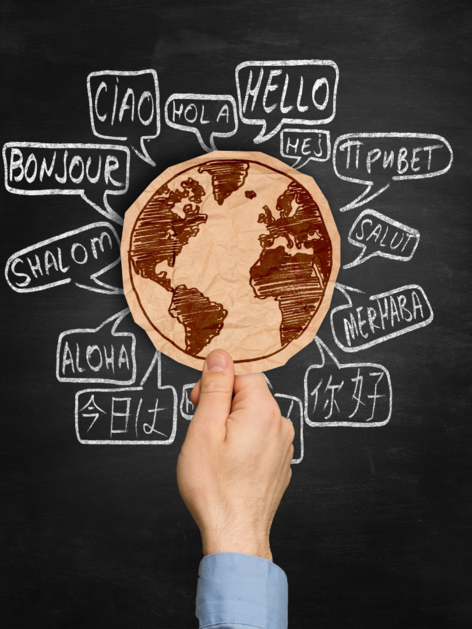The Best European Destinations to Learn a Language in 2025
Languages and Multilingualism in Europe

Europe, with its rich variety of languages, is often ranked among the best destinations for language learners. As the Express highlights, immersing yourself in a beautiful European setting makes learning a language feel much easier. Each year on September 26, the European Day of Languages celebrates this linguistic and cultural diversity while promoting lifelong language learning as a way to foster deeper cultural understanding.
According to Eurostat, the European Union officially recognizes 24 languages, with English, French, and German being the most widely spoken-English leading the way. Other official languages include Bulgarian, Croatian, Czech, Danish, Dutch, Estonian, Finnish, Greek, Hungarian, Irish, Italian, Latvian, Lithuanian, Maltese, Polish, Portuguese, Romanian, Slovak, Slovenian, Spanish, and Swedish.
Notably, around 65% of Europeans speak at least one foreign language, a sharp contrast to the 20% of adults in the United States. Within Europe, there are big differences: people in the Nordic countries are generally stronger at bilingualism compared to those in Southern Europe, while in many cosmopolitan areas visitors can often get by using only English. Unsurprisingly, native English-speaking countries tend to score lower in foreign language learning-only half of Ireland's population speaks a second language, and the UK has the lowest rate in Europe at just 34%.
Europe is home to around 225 indigenous languages, though this represents only about 3% of the world's total-Africa and Asia dominate globally in language diversity. While English is widely known, German has the largest number of native speakers in Europe due to its status as the official language of several countries.
Broadly, European languages fall into three families: Germanic (e.g., German, English, Norwegian), Romance (e.g., French, Spanish, Italian, Portuguese, Romanian), and Slavic (e.g., Russian, Polish, Bulgarian, Czech, Serbian). For those seeking a challenge, languages like Hungarian, Finnish, and Polish are often considered the most difficult.
Germany: Innovative, Efficient & Historic
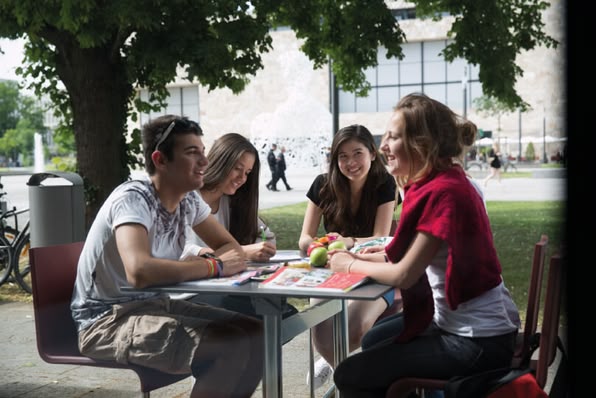
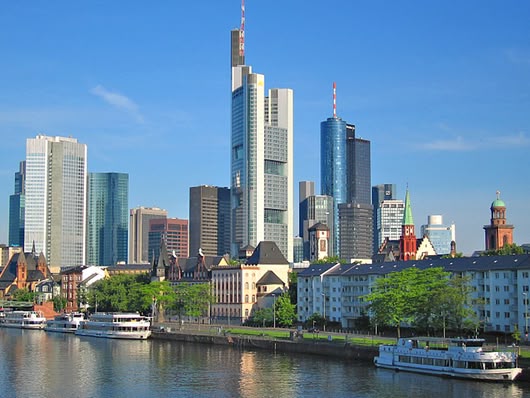

Languages: German (primary), English widely spoken
Why it stands out:German opens doors to Europe's largest economy, a rich cultural landscape, and a language spoken by over 100 million people worldwide and the most widely spoken native language in Europe (over 90 million people). It is the official language spoken in education, media, and daily life.
Beyond the stereotypes of precision engineering and philosophical depth lies a language that connects you to cutting-edge research, environmental innovation, and centuries of artistic influence. It is a key language for business, science, and international relations and opens doors to Europe's largest economy and a rich cultural landscape.
Germany is an economic powerhouse, as it represents the fourth-largest economy globally and the largest in Europe, making German language skills increasingly valuable in international business. It also functions as a scientific hub, as German-speaking countries produce significant research in medicine, engineering, and environmental science. Also, there is deep cultural influence offered by Germany in spheres ranging from philosophy to music and film to literature, which continues to shape artistic expression and global thinking.
Learning German also helps you navigate influential language communities across Germany, Switzerland, Luxembourg, Austria, Liechtenstein, and parts of Belgium and Italy. The language's dominance in technology, automotive engineering, and renewable energy makes it particularly relevant in today's interconnected world.
Not only professionally, but learning German can also help students to make astounding progress academically. Notably, Germany offers world-class education with minimal tuition fees compared to other developed nations. Many public universities charge only a semester fee ranging from €100-350, making quality education accessible irrespective of financial background. German universities also consistently rank among the world's best, particularly in engineering, natural sciences, and business. Nearly 1700 degree programs are taught entirely in English, although knowing German significantly enhances your experience.
International students are also allowed to stay in Germany for up to 18 months to seek employment related to their studies, which helps them find employment in the German job market in in-demand fields like engineering, IT, and healthcare and also lets them settle in Germany and call it their home eventually.
Learning German offers significant advantages across multiple industries and job functions, and also helps you absorb the culture of the country and integrate efficiently. A language school is often touted to be the best bet to enhance language skills. Taught in a prominent German language school through cultural immersion, paired with native and highly qualified teachers and adequate self-study material and resources, one gets to learn the strategic German language effectively.
France – A Cultural Epicenter


Languages: French
Why it stands out: Did you know that English owes half of its vocabulary to French?
French is a top-tier international language spoken on five continents (over 300 million speakers), making it one of the most global languages. It has an official-language status in 29 countries, including Belgium, Haiti, Luxembourg, Switzerland, Monaco, Niger, Senegal, Togo, Canada, and more.
It's a major diplomatic language (UN, EU, African Union, Olympics). Studying French in France adds prestige to your CV and opens opportunities in international business, fashion, gastronomy, and academia.
Learning French will not only make you a part of the incomparable cultural universe of France, which is home to Victor Hugo, Monet, and Albert Camus and has made staggering progress in the worlds of fashion, gastronomy, the arts, architecture, and science, but it is also an indispensable career asset.
The ability to speak both French and English is an advantage for students seeking employment with the many multinational companies using French as their working language in a wide range of sectors (retailing, automotive, luxury goods, aeronautics, etc.).
France, as the world's fifth-biggest economy, attracts entrepreneurs, researchers, and the cream of foreign students.
Speaking French also opens up opportunities for higher education at some of France's best-known universities (the Sorbonne, Pierre Marie Curie University, etc.) or elite grandes écoles (HEC, Polytechnique, ESSEC).
Luxembourg – A Multilingual Powerhouse
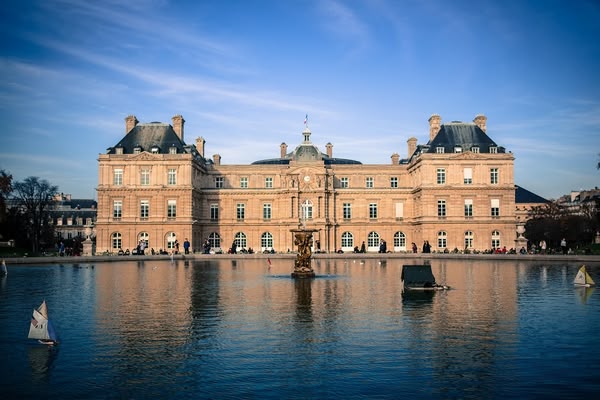
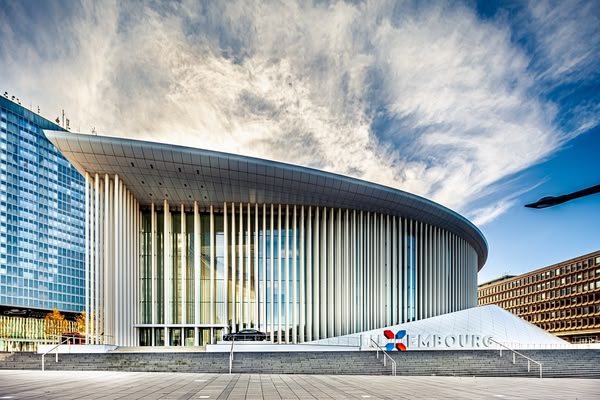
Languages: Luxembourgish, French, German
Why it stands out: This small but mighty nation leads multiple rankings for language learning thanks to its trilingual environment.
Most Luxembourgers are fluent in at least three languages, and the country has excellent infrastructure, high education standards, and strong international ties.
Luxembourgish (Lëtzebuergesch) is the national language and a key part of local identity. Speaking it shows respect and helps you connect with Luxembourgers on a personal level.
However, French dominates in law, government administration, and many workplaces, and German is widely used in media, newspapers, and education.
Luxembourg is one of the world's top financial hubs, with a very international workforce. Multilingualism is highly valued, and speaking the local languages sets you apart. Many jobs require or strongly prefer candidates fluent in at least two of the three official languages.
According to a 2018 study of the Ministry of National Education, 98% of the Luxembourg population speaks French, 80% speaks English, and 78% speaks German.
Luxembourgish is used by 77% of the population. Therefore, learning Luxembourg's local languages isn't just about communication-it's about belonging, career growth, and thriving in a truly multilingual society.
In 2025, Luxembourg is still ranked #1 by Preply for its linguistic diversity and inclusivity. It is also a great place for English speakers, as a majority of locals speak fluent English too, making the transition smoother for language learners.
Spain – Sunny Weather, Serious Learning


Languages: Spanish, Catalan, Basque, Galician
Why it stands out: Spanish is spoken by over 500 million people in the world and is the fourth most spoken language in the world. It's the official language in 21 countries across Europe, Africa, and the Americas. It is safe to say that Spanish continues to dominate global language learning. This beautiful and vibrant language opens doors to rich cultures, professional opportunities, and cognitive benefits which extend far beyond simple communication.
Spanish is an official language of the United Nations, European Union, World Trade Organization, and numerous international treaties. Also often called español (Spanish), it is also referred to as castellano (Castilian) in many regions, reflecting its rich historical development.
Spain has world-renowned language schools and university programs tailored for international learners, for example, we have a beautiful campus in Malaga where you can both learn Spanish amid a roster of international students, boost your CV and have the time of your life while soaking in the Andalusian charm.
They offer intensive courses combine grammar, conversation, and cultural immersion. And Spain's welcoming vibe and dynamic culture make it easier to practice your skills beyond the classroom.
Latin America is currently displaying a growing economic force with expanding markets in technology, renewable energy, and e-commerce. Spanish skills position you to participate in these emerging opportunities across diverse industries.
Malta - A Cultural Mosaic


Languages: Maltese, English
Why it stands out: English is the most widely spoken language in the world, with an estimated 1.5 billion speaking English as a first or second language globally. It is the language of science, technology, tourism, and business. The benefits of learning English are, therefore, numerous. Not only can studying English open up new opportunities for employment, academia, and travel, but it can change your life on a personal level as well.
Knowing English and being able to communicate professionally will undoubtedly give you access and an extra leverage for new career opportunities. A Cambridge English survey finding says that 95% of employers in many non-native English-speaking countries consider English an important skill, and the same survey found that in 18% of companies, employees climb the career ladder faster and are elevated to higher job grades early on if they have good English skills.
English is not simply a language of international business, but also of travel and tourism, and you can communicate with most people, navigate systems and absorb culture as a large number of cities and populations in the world primarily speak in English.
Last but not the least, a large number of highly sought after academic programmes in the world are taught in English, and need a certain level of English proficiency as one of their key eligibility criteria.
Malta is one of Europe's top destinations for English-language learning, attracting thousands of students every year, and learning English here is relatively cheaper than learning it in cheaper than in the UK, USA, or Australia. Living costs, tuition fees, and accommodation are more budget-friendly, while the quality of education is still very high.
Netherlands - Multilingual by Nature

Language: Dutch
Why it stands out: The Dutch are some of the most multilingual people in Europe, and the country ranks top in the 2025 Memrise survey for ease of integrating foreign language learners.
Almost 95% of the population speaks English fluently, and most Dutch universities offer English-language degrees.
Amsterdam, Rotterdam, and Utrecht are especially good bases for learners interested in languages and global cultures, and the country's cycling culture makes exploring easy and sustainable.
Tips for Choosing the Right Language Destination

Research the local dialects: For example, Spanish spoken in Barcelona (Catalan influence) is different from that in Madrid.
Consider cost of living: While Zurich is stunning, it's also one of Europe's most expensive cities.
Look for language school density: Cities like Valencia and Prague have hundreds of accredited schools, increasing your chances of finding the right program.
Check visa regulations: Some countries have student-friendly visa programs or digital nomad options for language learners.
Final Thoughts: Learn Local, Think Global
Studying a language abroad isn't just about grammar drills or vocabulary quizzes-it's about cultural immersion, personal transformation, and global citizenship. Whether you're sipping espresso in Rome, biking through Copenhagen, or exploring the fjords after class in Helsinki, language learning becomes an adventure in Europe.
Ready to take the leap? Our language programmes help learners match their destination with their goals-whether you're looking for some Andalusian charm in Malaga or a structured language immersion in Frankfurt.
In 2025, there's no better time to pack your bags, pick your language, and let the world be your classroom.




